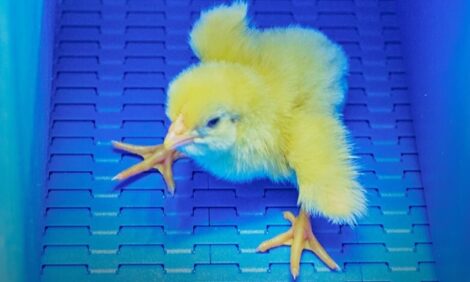



Insights into poultry health with Ms Lavita Dalgado
Ms Dalgado from Premium Chick Feeds, Mumbai, India, speaks with Ceva's Guillermo Gonzalez, DVM, on poultry health in India.First, please introduce your company, yourself and tell us about your experience in the industry.
My name is Lavita Delgado from Premium Chick Feeds. My company has been around for more than 25 years. We started off in 1991 as a feed manufacturing company, but over the years with the changes in the industry, and how the industry moved from backyard farming into a more organised sector, today we are a complete, pledged, fully integrated company. We work across 9 states within India, focused on broiler integration and the sale of live birds.

I have been with the company for the past 5 years, with previous experience in the bank industry. I decided to move from one sector to another to enjoy the good perspectives of the poultry sector, since this company was formed by my father and I definitely felt that it is an area that I should join. My role in the company is to look at the finance operations in the State of Maharashtra and other nearby states.
From your point of view, what is the impact that disease has on your operations?
In India we follow different markets, we do not have a fixed sales market, or a processed market. It is a market that is mostly a live market, with around 96 percent or more birds that are sold live. So when you look at that and you do not have a fixed selling price, the only area that you can control is your costs and when you look at costs there are different angles to consider: one is nutrition, another infrastructure, genetic potential of your birds and there is definitely a disease control point. It’s a big area that you need to focus on, because when you achieve disease control, you control mortality and the quality of the bird that you sell to the market. I think it’s an important point for our company and for the poultry industry in India as well.
From a management point of view, is it easy for you to tackle these issues?
Compared to the past it has become a lot easier, because in the past the industry was a fragmented farming market; we did not have such an organised sector. Now we have suppliers and pharmaceutical companies like Ceva, and we are getting a lot of support from them, such as choosing the right vaccination, identifying the disease, strain, and sending our blood samples to labs where you can identify exactly which vaccine is going to work for us. There has been a lot of support for the trials conducted in our premises, analysis of final results and follow-ups. I am thinking, for example, in the systems offered, like hatchery vaccination, which is helping us to control disease right at the source instead of trying to control it at the farm. So, in-house hatchery vaccination is something we learned from Ceva and which has definitely helped us in many ways. It takes a lot of control to make sure that each flock being sent from the hatchery is vaccinated and protected against any diseases that may be out there.
We know that in the industry there is a generational change: what do you expect from an animal health company to deliver in the next 20-25 years?
In the states in India that I travel to regularly, I can see a lot of respiratory diseases like bronchitis as well Gumboro disease. In the last 4-5 months we had to face 7 to 20 percent mortality rates in every farm, which are huge losses for our business and for the industry as a whole. So, what I expect from Ceva, is to go out there, properly identify the disease and to find a vaccine which is useful to tackle these problems, strongly impacting our company at farm level.
You know that we are celebrating 1 year of Transmune vaccination in India now. Do you see the benefits of this vaccination program in your operations? What are your experiences during this year, and have we delivered what we promised?
The short answer is: yes. We definitely have benefited from it in terms of ROI (return on investment). Even though the cost of the Ceva vaccines are higher than competitors, we have seen the benefits in our internal trials.
Do you think that we can further extend your relationship with Ceva?
Yes, we can work around figures and trainings. Ceva teams have been very supportive to us, they have been coming to our farms in all 9 states where we are present in India, to our hatcheries, training our employees. All that has been beneficial for our operations and company as a whole. The data analysis that we have done, the results and feedbacks coming from the trials conducted in our farms. As a whole, all this has been helping us to operate with a better understanding and performance. So I think that the relationship is evolving and will be there for a long time.









